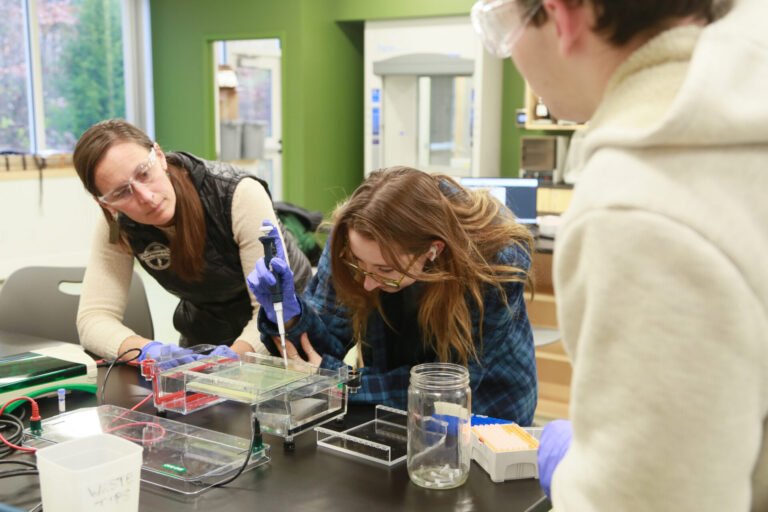
Bears and humans aren’t known for always seeing eye to eye. Sure, the two species can have positive encounters, such as bear sightings at a safe distance in the northern Maine woods. Human-bear interactions, however, can turn nasty very quickly, ranging from the more benign end of the spectrum where bears commandeer human food, agricultural crops, or livestock, to more harmful incidents where people get hurt.
It’s these interactions that are the focus of Unity College Assistant Professor of Wildlife Biology, Dr. Jack Hopkins’ latest research project titled Development of a Multi-method Approach to Study Wildlife Behavior: Investigating Human-Bear Conflicts in the Contrasting Landscapes of Europe. For Dr. Hopkins’ Fulbright Scholarship, he and researchers from the University of Ljubljana will use a large collection of tissues (muscle, liver, hair, and teeth) sampled from roughly 800 bears in Slovenia and Scandinavia over the course of roughly 25 years to investigate human-bear conflict.
“It’s a really great opportunity to work with my partners,” said Dr. Hopkins, noting that Fulbright Scholarships offer only about 20 percent of applicants the chance to either teach, conduct research, or do a combination of both. For the spring semester, Dr. Hopkins earned an award to focus strictly on research, leaving Maine for Slovenia at the end of December with his wife and four children.
“I’m also really excited about the opportunity for my kids,” he said. “Having the chance to live and go to school in Europe has the potential to really change their lives. It’ll be a great family adventure.”
Slovenia has one of the highest-density bear populations in the world, which is in part due to the country’s interest in harvesting them twice a year, using supplemental corn feed to maintain their thriving population. Dr. Hopkins will work with genetic and isotopic data from bear tissues to investigate their reliance on corn, how their diets affect their reproductive success and survival, and how conflict behavior develops in the first place.
“I want to congratulate Dr. Hopkins on this incredible honor, and I can’t wait to see the results and conclusions that his research produces,” said Unity College President Dr. Melik Peter Khoury. “Here at Unity College, we emphasize experiential education for our students, but it’s important to also encourage our faculty to pursue opportunities like this. In turn, they will pass down those experiences and inspire our students in the classroom and in the field.”
Although the research project focuses on Slovenia’s brown bear population, Dr. Hopkins believes the issues, in many ways, are similar here in Maine.
“Brown bears feed on corn in Slovenia like black bears feed on doughnuts and other bait in the fall in Maine,” Hopkins said. “In both places, baits are used to help control population numbers and meet the needs of hunters. Although baiting is controversial in Maine, it is the most successful method used to harvest bears. The concern is that if these artificial food sources are removed from the landscape, harvest numbers will decrease, and human-bear conflict will increase with bear density, which obviously has huge management implications in both Maine and Slovenia.”
For more on Dr. Hopkins’ research, visit jackhopkinswildlife.com.
Photo credit: Alojz Skvarca



